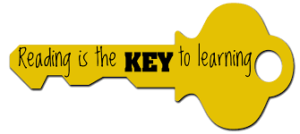There are memories and moments that form who we are and what we become. I cannot recall exactly when reading for pleasure became a part of me, and what I would become – a teacher, dear reader – but it happened before I’d ever realised.
Perhaps it was my father perched at my bedside reading stories to me, or watching my mother gobble up book after book with rapt attention. Maybe it was my Beano and Dandy collection, or perhaps it was reading James Herbert’s horror stories and being scared witless with fear mingled with excitement!
In retrospect, being given the opportunity to read was something I took for granted. Growing up in a family that thought reading mattered, whether it was the Daily Mirror, Catherine Cookson, or something more, was something I certainly took for granted. Being read to, or reading with, my teacher at school was something I found special and powerful, and I probably took that for granted too.
Then, a few weeks ago, I tripped onto the research by Margaret Kristin Merga on ‘Interactive reading opportunities beyond the early years: What educators need to consider‘. I was struck by children’s voice on their reading experience and I was reminded of what I had taken for granted.
Fragments from the fascinating research that struck me most included Anna and Jason, who regretted their mum stopping reading to them:
“Anna’s mother read to her frequently when she was younger, but “not so much now”. She regretted losing the “one on one time with my mum”. Similarly, Jason shared this regret, stating, “They kind of stopped when I knew how to read. I knew how to read, but I just still liked my mum reading it to me (sic)”.”
As a father who has the good fortune of hearing my children read to me each night, this fragment from Marco caught my heart:
“Marco read aloud to his mother at home, which involved re-reading parts that he already read. Marco nonetheless enjoyed this, as “she gets happy, like really happy when I read to her”.
You hear from children who see their teachers as vital reading role models:
“Rose wished to emulate her teachers’ high skill level in reading, explaining that “I think it was the teachers reading me the stories that really got me interested more about them, and how they seemed so confident in reading it, and so I wanted to be able to read good (sic).”
You can sometimes forget this, amidst a stack of marking and half-finished lesson plans.
What stands out from Merga’s research is the enduring value of listening. Whether it is a parent or a teacher, the act of listening offered relaxation and a deep enjoyment for the children in the study (and no doubt me too, in the distant past).
It is a seemingly obvious truth, but perhaps in the busy hubbub of chasing exam success, it can be forgotten?

As an English teacher, one of the big pleasures is conducting some whole class reading, hearing the proverbial pin drop as you read to the class. Of course, we can match the pleasure with an important purpose. Brett articulates why he enjoys being read to in school:
“it’s much easier for you to learn newer words because they might know the words that you don’t know”.
The sentiment is matched by Gina, who regretted her parents no longer reading to her:
“when they did read to me when I was younger, I learnt the words; I would like to learn more words in the bigger books and know what they are so I could talk more about them”.
Merga’s conclusion is that we “need a greater emphasis on quality interactive reading experiences at school and at home, which can improve student skills, and offer social and emotional advantages.” It is at once a complex and far reaching recommendation.
Of course, reading for pleasure simply isn’t very pleasurable if you are a struggling reader, but for children we need to twin improving reading skill with tending to their emotional will.






Comments